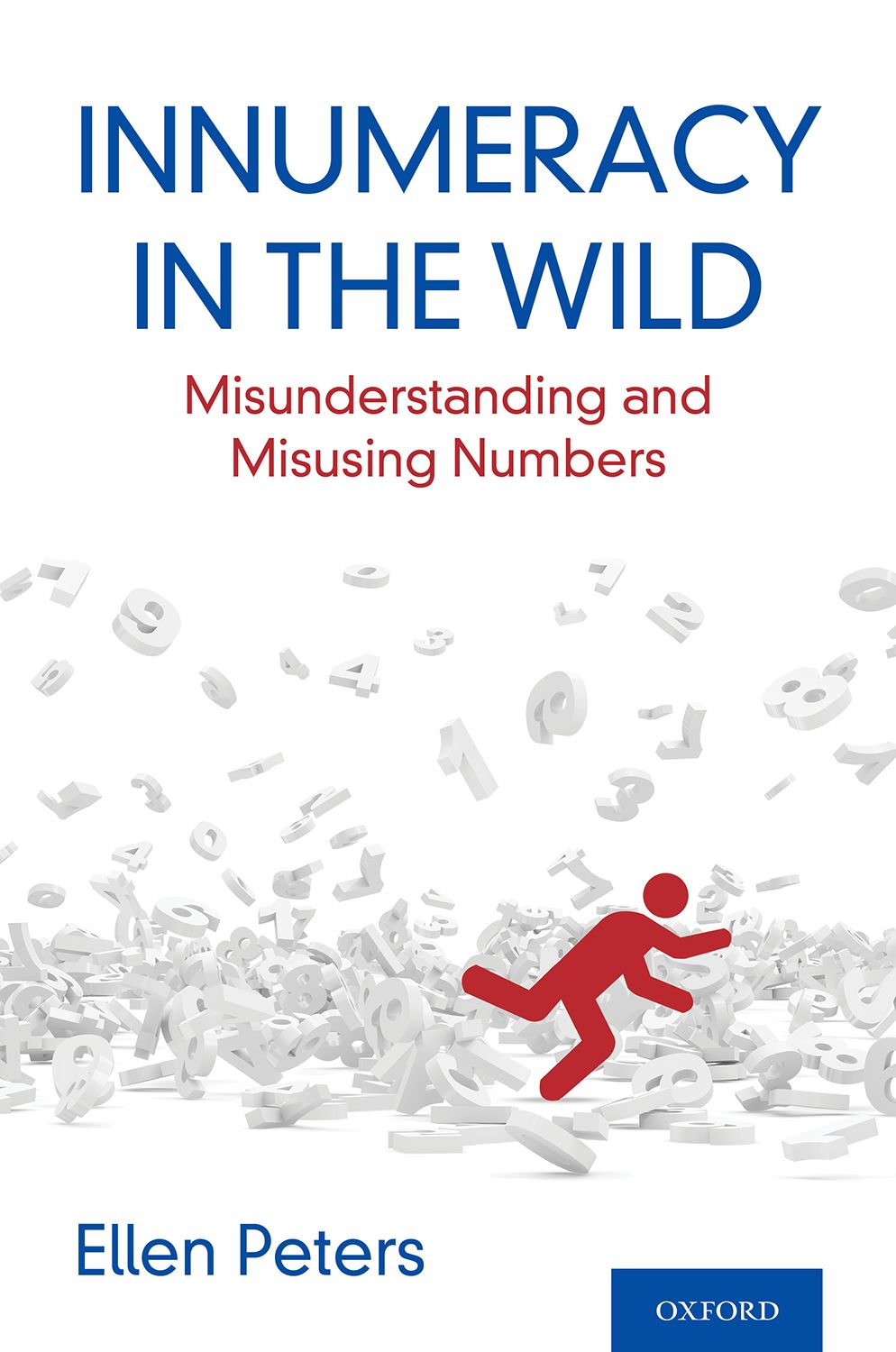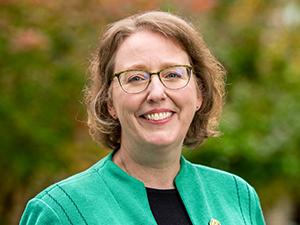Ellen Peters is an academic expert in decision making and the science of science communication. Her primary research interests concern how people judge and decide, and how evidence-based communication can boost comprehension and improve decisions in health, financial, and environmental contexts. She is especially interested in the basic building blocks of human judgment and decision making—such as emotions and number abilities—and their links to effective communication techniques. These processes are also central to the effects of adult aging on decision making as well as to public policy issues, such as how to communicate about the health effects of smoking or about the pros and cons of cancer screenings and treatments. She is also interested in methods to increase number ability, a.k.a. numeracy, to improve decision making and, in turn, health and financial outcomes. Click to learn more about her research at the CAIDe lab site and on her Wikipedia page. You can find a full list of her publications here.
As Philip H. Knight Chair, Director of the Center for Science Communication Research (SCR), and Professor in both the School of Journalism and Communication and the Psychology Department at the University of Oregon, Dr. Peters explores how policy makers, physicians, and other experts can enhance public understanding of science and technology by advancing the science of science communication.
Her book, Innumeracy in the Wild: Misunderstanding and Misusing Numbers, was published by Oxford University Press.

Contact: ellenpet@uoregon.edu | (541) 346-3828 | @ellenpetersjdm
Dr. Peters is not accepting new psychology graduate students for Fall 2025.
University of Oregon, Eugene, OR.
Ph.D. Psychology, Judgment and Decision Making.
M.S. Psychology, Judgment and Decision Making.
University of Pennsylvania, Philadelphia, PA.
B.S. Economics. The Wharton School of Business, Marketing.
B.S.E. Systems Engineering. Minor: Chemical Engineering.
Fellow, American Association for the Advancement of Science (AAAS) “For contributions to basic research on affect, numeracy, and risky decision-making, and for translational research on communicating health risks and improving medical decisions and policies”
Fellow, American Psychological Association, Division 38, Health Psychology
Fellow, Society of Experimental Social Psychology
Fellow, Association for Psychological Science
NIH Merit Award “For exceptional advances in integrating cognitive, affective, and social processes into cancer control research” (group award to members of the “Cognitive, Affective, and Social Processes in Health Research (CASPHR) Working Group” (see http://cancercontrol.cancer.gov/brp/casphr/)
Jane Beattie Scientific Recognition Award. Awarded for innovative contributions to decision research, European Association for Decision Making
- Peters, E., Boyd, P., Cameron, L.D., Contractor, N., Diefenbach, M.A., Fleszar-Pavlovic, S., Markowitz, E., Salas, R.N., Stephens, K.K. (2022). Evidence-based recommendations for communicating the impacts of climate change on health. Translational Behavioral Medicine, 12 (4), 543-553.
- Peters, E., & Salas, R.N. (2022). Communicating statistics on the health effects of climate change, New England Journal of Medicine, 387(3), 193-196. doi: 10.1056/NEJMp2201801
- Peters, E. & Shoots-Reinhard, B. (2022). Numeracy and the motivational mind: The power of numeric self-efficacy. Medical Decision Making, https://doi.org/10.1177/0272989X221099904.
- Bjälkebring, P. & Peters, E. (2021). Money matters (especially if you are good at math): Numeracy, verbal intelligence, education, and income in satisfaction judgments. PLOS ONE, 16(11), e0259331.
- Shoots-Reinhard, B., Goodwin, R., Bjälkebring, P., Markowitz, D., Silverstein, M., & Peters, E. (2021). Ability-related political polarization in the COVID-19 pandemic. Intelligence, 88, 101580, doi.org/10.1016/j.intell.2021.101580.
- Peters, E., Shoots-Reinhard, B., Shoben, A., Evans, A.T., Klein, E., Tompkins, M.K., Romer, D., & Tusler, M. (2019). Pictorial warning labels and memory for cigarette health-risk information over time. Annals of Behavioral Medicine, 53, 358–371, https://doi.org/10.1093/abm/kay050
- Peters, E., Tompkins, M.K., Knoll, M., Ardoin, S.P., Shoots-Reinhard, B., & Meara, A.S. (2019). Despite high objective numeracy, lower numeric confidence relates to worse financial and medical outcomes. Proceedings of the National Academy of Sciences (PNAS), doi.org/10.1073/pnas.1903126116.
- Peters, E., Fennema, M.G., & Tiede, K.E. (2018). The loss-bet paradox: Actuaries, accountants, and other numerate people rate numerically inferior gambles as superior. Journal of Behavioral Decision Making, 32, 15–29. https://doi.org/10.1002/bdm.2085
- Kahan, D.M., Peters, E., Dawson, E.C., & Slovic, P. (2017). Motivated numeracy and enlightened self-government. Behavioural Public Policy, 1(1), 54-86.
- Peters, E., Evans, A.T., Hemmerich, N., & Berman, M. (2016). Emotion in the law and the lab: The case of graphic cigarette warnings. Tobacco Regulatory Science, 2(4), 404-413. DOI: http://dx.doi.org/10.18001/TRS.2.4.10.
- Evans, A.T., Peters, E., Strasser, A.A., Emery, L.F., Sheerin, K, & Romer, D. (2015). Graphic warning labels elicit affective and thoughtful responses from smokers. PLoS ONE, 10(12): e0142879. doi:10.1371/ journal.pone.0142879.
- Sinayev, A. & Peters, E. (2015). The impact of cognitive reflection versus calculation in decision making. Frontiers in Psychology, 6:532. doi:10.3389/fpsyg.2015.00532.
- Peters, E. & Bjalkebring, P. (2015). Multiple numeric competencies: When a number is not just a number. Journal of Personality and Social Psychology, 108(5), 802-822.
For a full list of Dr. Peters's publications and Google Scholar citations, please click here.

